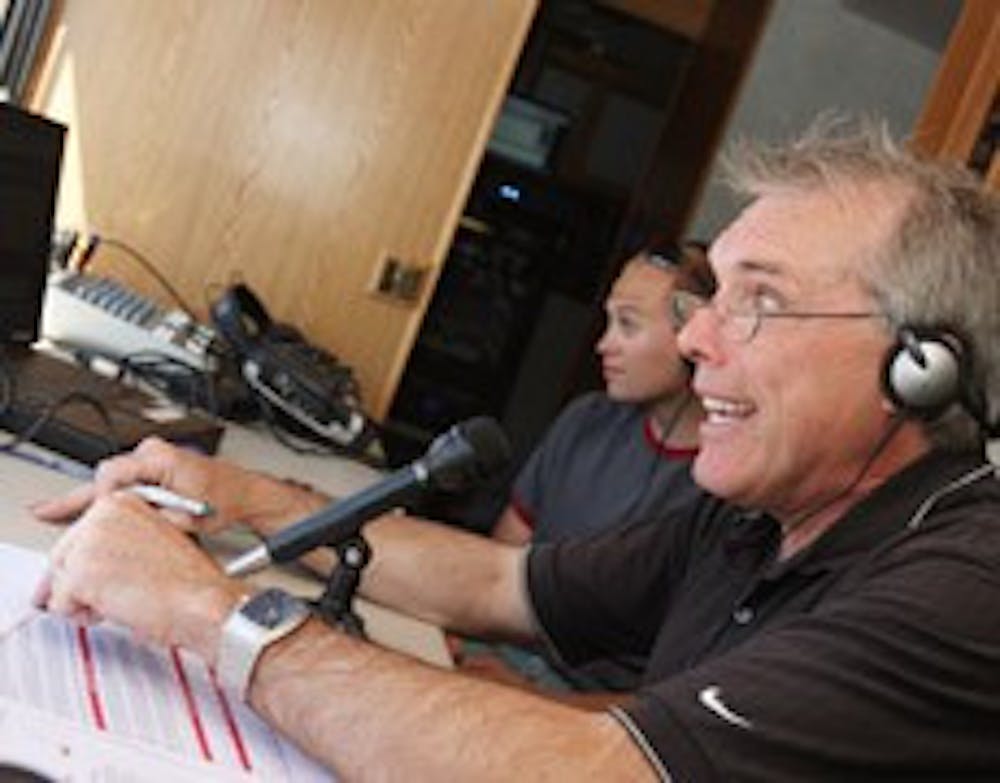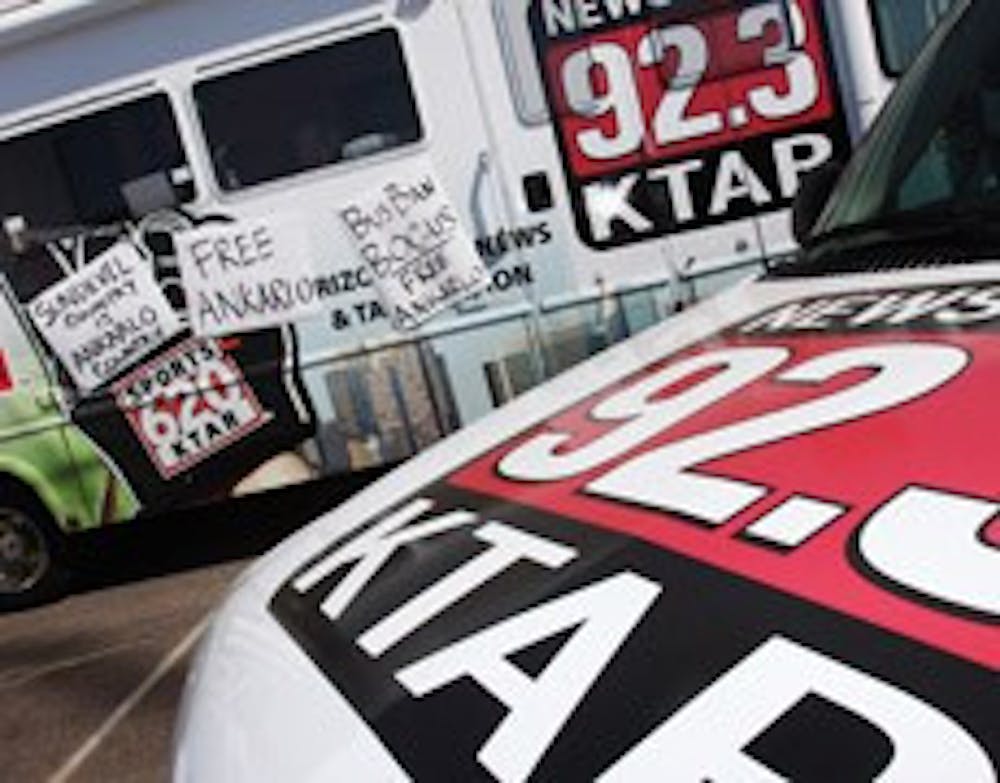An ASU parking lot became the battleground for a free speech debate Monday when a KTAR talk radio personality hosted his show on campus to protest the station's ban from University shuttle buses.
But on Monday, an ASU spokeswoman denied that ASU ever banned KTAR, saying that company bus drivers was merely asked to turn down the radio or change the station if students were offended.
News/Talk 92.3 KTAR-FM morning talk show host Darrell Ankarlo broadcast his show from Lot 59 North Monday morning, while listeners and students handed out flyers with a picture of the host behind bars, and the words "Free Ankarlo" below his mug shot.
A copy of the text from the Bill of Rights was printed on the back of the flyers with the words "freedom of speech" underlined and bolded.
The debate stemmed from a temporary ban of KTAR from campus shuttle buses after one student complained twice about the station being played on a bus, said George Gravley, a spokesman for Coach America — the company that is contracted to run the University's bus service.
In a memo that was sent to bus drivers Thursday, Fred Seibel, Coach America director of operations, said the station "has been deemed to be offensive and distasteful."
Ankarlo, who broadcast from a trailer decked out in KTAR station identification, said, although his show's content may be deemed offensive by some, he never censors calls and allows anyone who disagrees with his opinions to say so on the air.
"Maybe what I say is offensive sometimes, maybe what I say gets in your face sometimes, but isn't that how you learn?" Ankarlo said.
ASU spokeswoman Leah Hardesty said ASU does not currently have a policy regarding radio stations on shuttle buses between the four campuses but will work together with Coach America to come to a decision.
When the University received the two written complaints from a student, it suggested to Coach America that its drivers either turn down the radio or change the station, but left the rest up to the bus company, Hardesty said.
"We did not impose a mandate or a ban," she said.
The reason KTAR was played in ASU buses in the first place was because it was up to the drivers' discretion to decide which station was played, Hardesty said.
"The radios on those buses are not intended for the passengers, they're intended for the drivers," she said.
The student who complained must have been within earshot of the radio, Hardesty said.
"Whether it's one student that files a complaint or 10,000 students, we're going to look into it," she said.
The temporary decision to turn down or turn off the radio was not motivated by political preferences on the University's behalf, Hardesty said.
"ASU is an unbiased institution of higher education," she said. "We foster and promote the free exchange of opinions, no matter what those opinions may be."
Yossi Wolfe, a mechanical engineering freshman, stood on the corner of Rio Salado Parkway and Packard Drive Monday morning waving a sign that said, "Honk for KTAR" in bold black lettering.
Wolfe used the 30 minutes he had before class to join in the KTAR protest.
"I should be studying chemistry, but I kind of think this is important," he said. "It's nice that they would change something based on one student's complaint — I wish they would do that for tuition."
Still, Wolfe said turning off the radio was an overreaction.
"I think it's wrong they completely turned off the radio stations because one student complained," he said.
Reporter Daniel Newhauser contributed to this report.
Reach the reporter at: leigh.munsil@asu.edu.





